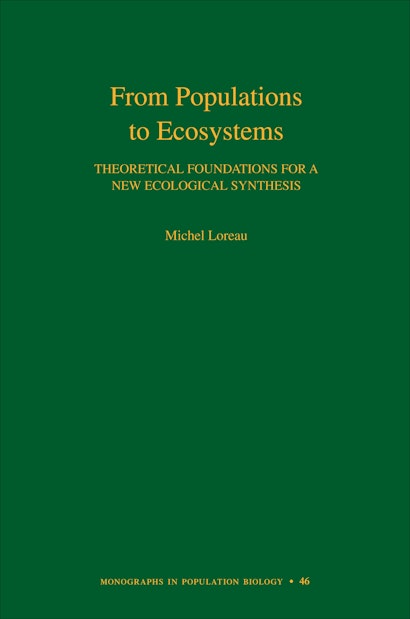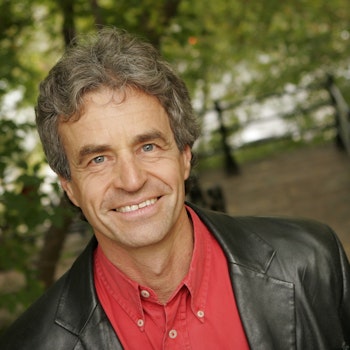The major subdisciplines of ecology—population ecology, community ecology, ecosystem ecology, and evolutionary ecology—have diverged increasingly in recent decades. What is critically needed today is an integrated, real-world approach to ecology that reflects the interdependency of biodiversity and ecosystem functioning. From Populations to Ecosystems proposes an innovative theoretical synthesis that will enable us to advance our fundamental understanding of ecological systems and help us to respond to today’s emerging global ecological crisis.
Michel Loreau begins by explaining how the principles of population dynamics and ecosystem functioning can be merged. He then addresses key issues in the study of biodiversity and ecosystems, such as functional complementarity, food webs, stability and complexity, material cycling, and metacommunities. Loreau describes the most recent theoretical advances that link the properties of individual populations to the aggregate properties of communities, and the properties of functional groups or trophic levels to the functioning of whole ecosystems, placing special emphasis on the relationship between biodiversity and ecosystem functioning. Finally, he turns his attention to the controversial issue of the evolution of entire ecosystems and their properties, laying the theoretical foundations for a genuine evolutionary ecosystem ecology.
From Populations to Ecosystems points the way to a much-needed synthesis in ecology, one that offers a fuller understanding of ecosystem processes in the natural world.
Michel Loreau is professor and Canada Research Chair in theoretical ecology at McGill University.
"This reviewer was particularly intrigued by the author's resurrection of the hypothesis that ecosystem complexity and biodiversity supports ecosystem stability, an early romantic notion that turned out to be extremely difficult to demonstrate. He makes a convincing case that this hypothesis may have merit after all."—Choice
"This is a superbly written book about a very important challenge, namely that the theories of population, community and ecosystem ecology, and of evolution, have developed separately and are not entirely compatible. We need a synthesis of theories of population dynamics and ecosystem function and, faced with a global environmental crisis, we need it badly. This book is an excellent start. . . . I strongly recommend this book to researchers in any branch of ecology."—Alan J. Butler, Austral Ecology
"I found the text both informative and interesting, and certainly relied upon my background in population ecology and genetics in reviewing this text. In the classroom environment, I could see this text being used in a graduate seminar or perhaps a senior-level honors class in biology, ecology, environmental science, or any of the related disciplines (as a paleontologist, I would certainly recommend it!)."—Ryan F. Morgan, Priscum
"Michel Loreau has bravely, and successfully, built a new unified framework that harmonizes the disparate, and often conflicting, fields of population biology, community ecology, and ecosystem ecology. This book provides an exciting stimulus for new efforts to test and verify the rich array of insights that he provides."—Harold Mooney, Stanford University
"Understanding global diversity has primarily been the business of evolutionary biologists, ecologists, and, only recently, the new breed of ecosystem/community ecologists, with little synthesis. In From Populations to Ecosystems, we can begin to see how these might all come together. This book is a valuable contribution, and will garner a wide readership."—Shahid Naeem, Columbia University
"Loreau has crafted a significant volume that makes an important and timely addition to the literature on ecology. He writes clearly, even when he is grappling with thorny theoretical problems. No other author out there could have carried off the synthesis he provides. I predict that From Populations to Ecosystems will prove to be an invaluable resource for years to come."—Robert D. Holt, University of Florida


